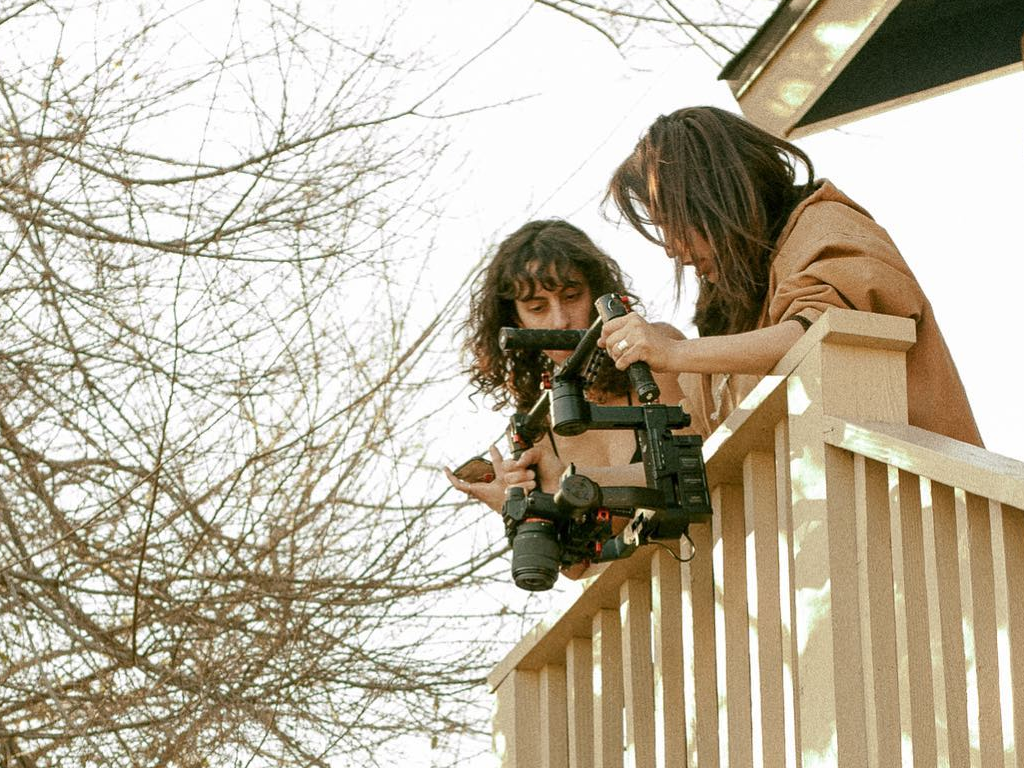I first met Maya Korn when she was promoting a short film called "Diabla" (or at the time, "Ex Voto") for her Columbia MFA producer's thesis. She has since graduated and started her own company, MHK Productions. When she approached me about doing an interview for a new film she was producing (along with Jessica Toscano), I was immediately interested. After perusing the "Becoming" Seed & Spark page, I was shocked to find that the film's narrative, while technically fiction, was based on true events.
As director Alexandra Velasco notes in the video above, "This film reflects on our current times, where women's lives are expendable and blatant abuse of power goes unpunished, and at times even rewarded." Donald Trump wasn't wrong when he said, "I could stand in the middle of Fifth Avenue and shoot somebody and I wouldn't lose any voters." Stories like "Becoming" are important because they remind us of how easy it is for wealthy men (and boys) to get away with terrible shit.
Although doing multi-person interviews always stresses me out, it was fun to FaceTime with these three badass ladies. The world may be weird right now, but one thing that always brings me comfort is hearing other creative people talk about their passions (along with weed ... lots of weed).
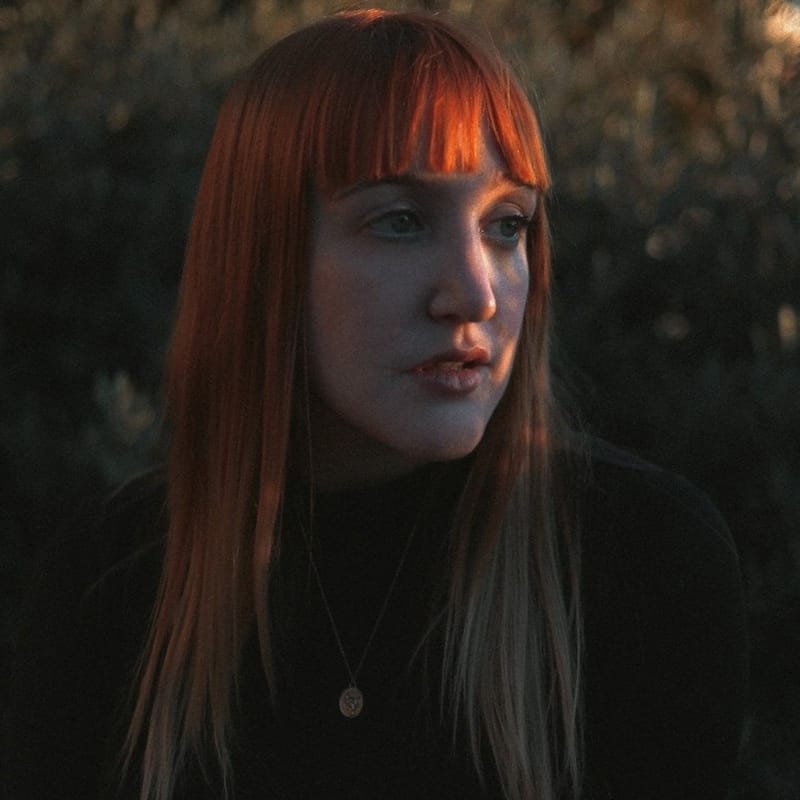
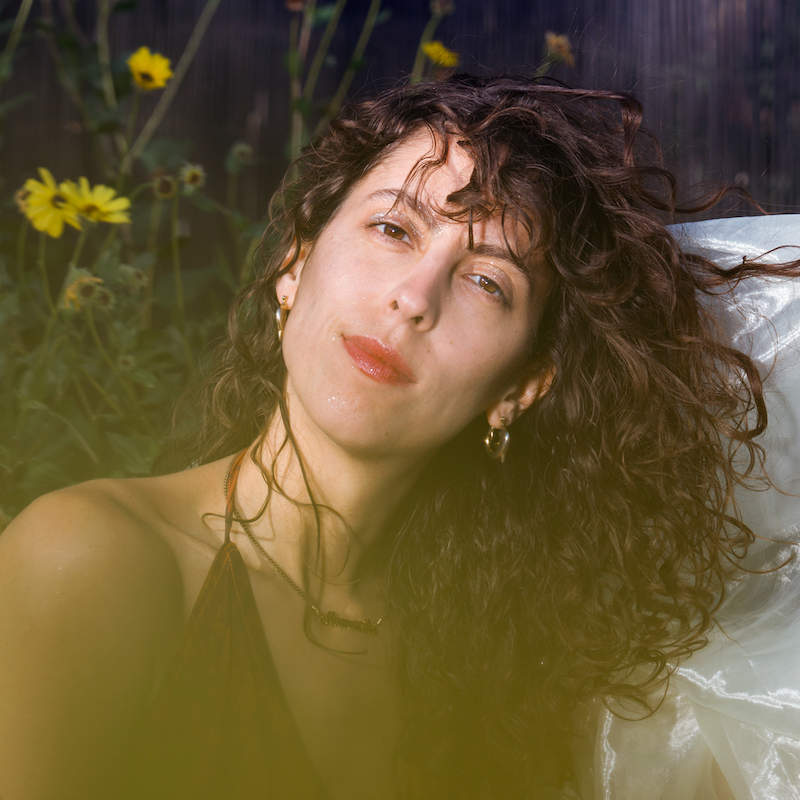
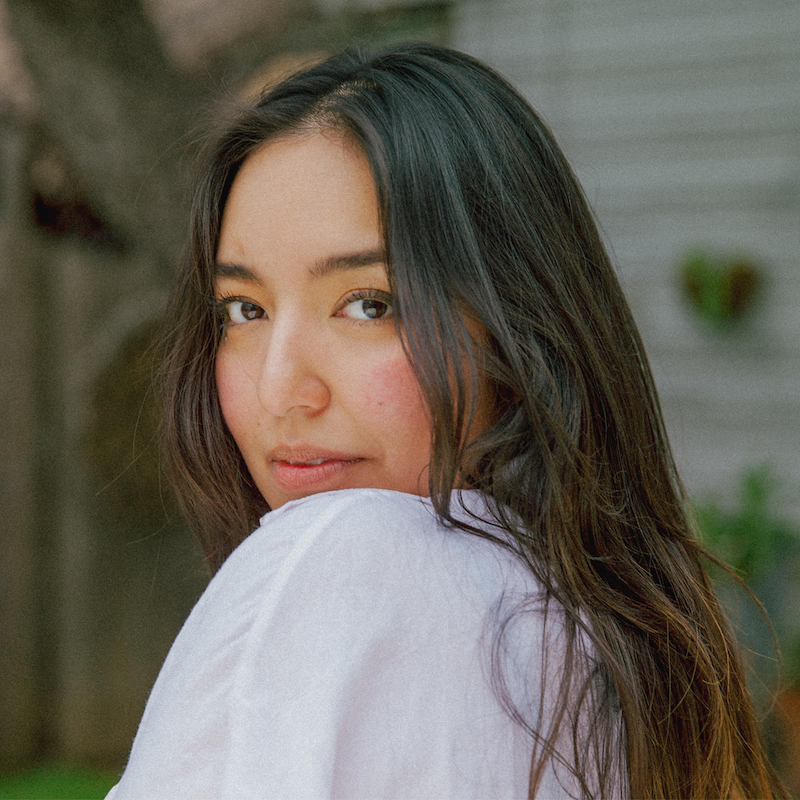
From left to right: Maya, Alexandra, and Jess.
Interview with Maya Korn, Jess Toscano, and Alexandra Velasco
This conversation has been edited and condensed for clarity. As a courtesy, I cut out all of our COVID-19 anxiety talk at the beginning 😬
Woman in Revolt: How did each of you get into film?
Alexandra Velasco: I'm from Mexico City and have lived in LA for five years now. My background is in multimedia art. I started off drawing as a child, and my talented nanny Rita helped me take it to the next level. Drawing together was our way of connecting. I always loved movies but never thought that filmmaking was something attainable for me. No one ever told me it was a possibility, so I kind of didn't think about it until I went to college for graphic design. While there, I took a video art class that was taught by a woman. She was like, "You can do anything. If you have a camera, you can do whatever you want! You don't even need a computer program to edit because you can just do it while you're filming." That gave me a lot of liberty.
I started with video art, then moved to music videos. I initially did them for musician friends and then started actually getting hired. I also did some fashion films. Those are fun because they can be very experimental. I went to Parsons and had a lot of friends who were studying fashion design.
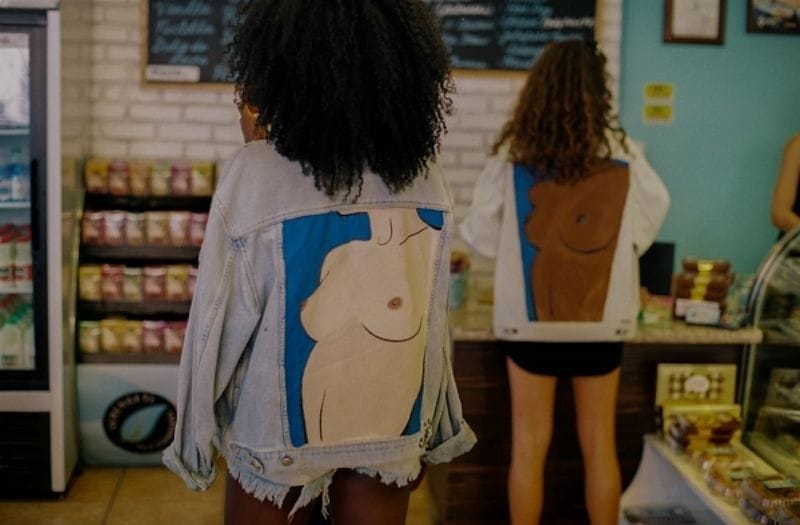
In 2014, I made a film called "The First of the Free Girls," an experimental narrative fashion film. I shot it in Mexico City, and it was my first time working with a big crew on something that I had written. It felt amazing and I knew it was what I wanted to be doing for the rest of my life. That project was really easy because we had funders ... people's parents, I think. It gave me the false impression that it was going to be that easy all the time [laughs].
Jess Toscano: My road to filmmaking is kind of similar to Ale's, as in art was always a part of my life, mainly through my grandma. She introduced me to Mexican poetry, art and films at a young age. At seven, I started dancing and performance kinda became my thing. I kept that going until college, mainly as a hobby/passion, and never thinking of a career. Growing up in a small border town in Texas, you never really saw filmmaking/dance/art as an actual career to pursue. In many Mexican-American families, you're expected to have a normal stable career, not be an artist. I moved to LA for college and didn't even think about film until two years in when I finally took a film class. It blew my mind to see all of the work that goes into creating movies, and it sparked an intense curiosity; I want to be a part of it.
So, I ended up leaving school. I was attending a private school and I knew that it was going to be a process to re-do everything and switch to a film degree. Against all odds, I took a chance and decided to pursue it on my own. I worked so many random/weird jobs for years just to make a living in LA since it's so expensive here. I eventually started meeting people in the industry and began assisting, shadowing, and started PA-ing for commercials. The choice to become a producer kind of came through when I realized that those are the people who make everything happen. I knew that if I ever wanted to do something with my writing or for my own projects, knowing how to produce would be essential. I climbed the ladder, hustled, and two years after I started PA-ing I produced my first national commercial. I've been a freelance producer ever since.
Maya Korn: I finished my masters last year in February. "Diabla" had a crazy long post-process — two years! Now it's having its festival run. I knew from quite a young age that I wanted to work in film, but I wasn't sure in what capacity. I took a directing class when I was eighteen and really didn't like it. I did advertising internships through school because I thought I maybe wanted to go into film marketing. After that stalled, I started producing immersive theater on the side and was like, "Okay, I guess I'm a producer."
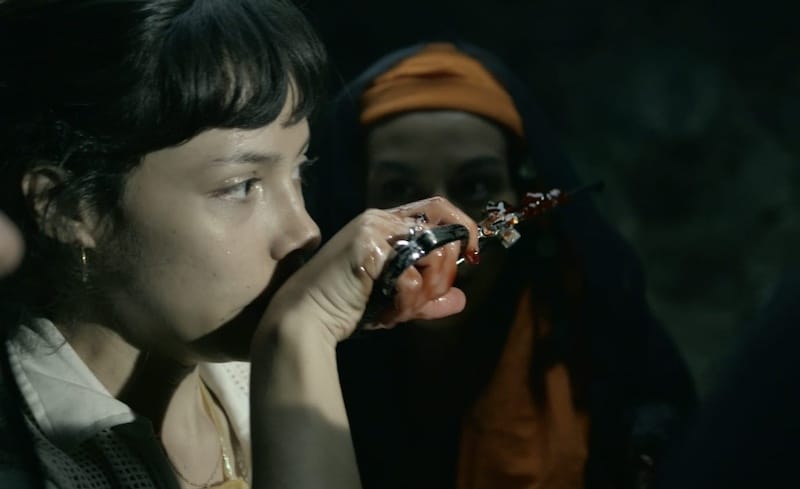
Since we last spoke, I made a few more films. I worked on one last year ["Major Arcana"] with another Mexican filmmaker [Sebastian Sariñana]. It was a witchy piece about a woman who dies in a forest fire and gets brought back to life by her daughters using tarot.
Ale, how did you conceive of this project and what brought you all together?
Ale: I wrote this story after I found an article about a four-year-old kid who was playing war games with his brother. They had their dad's rifle and decided to execute the housekeeper, who they identified as "the enemy." No one ever got punished, and that kid became the president of Mexico like forty years later. I was so intrigued by the origin story of this really scary guy who went on to do even more horrible things during his presidency.
After I finished writing it, I shared the script with Maya and Jess who both really liked it. They're creative producers, so they both gave awesome notes for improvement. They questioned me, which is what helps make things better. I asked them how they would each feel about having a co-producer and they were cool with it. We all met later and got along really well. It's weird times right now, but we're still working on this. It's one of the things keeping me from losing my mind.
Maya: I met Ale randomly at a release party for a music video that she directed. She met Jess on a shoot for a web series.
Ale: Jess produced, and I was the art director.
Jess: It's called "Or Die Trying."
Ale: Like "Sex in the City" or "Girls" but based in LA.
Jess: I actually met Maya last year because of Ale. Maya was producing another film and we talked about me maybe coming on to help. That unfortunately fell through, but then this project happened.
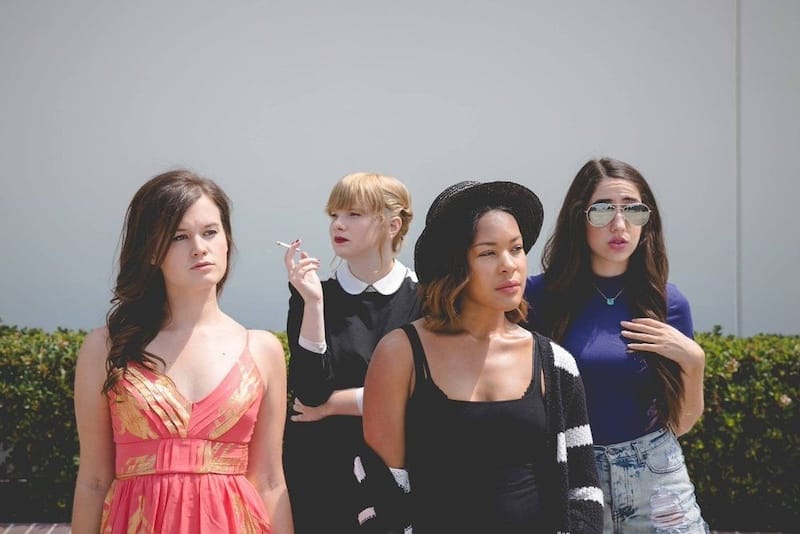
With "Becoming," I like that you're focusing on the class aspects of the story along with toxic masculinity. How will those different themes manifest in the film?
Ale: The article that inspired this film doesn't really say why the kids killed the housekeeper, but I kept thinking about their motivation. Even as a kid, something would have to drive you to pull the trigger. Men are raised to compete ... to be strong and powerful. Family dynamics keep that cycle going.
Maya: The title was initially "War Game" and was eventually changed to "Becoming." As the script stands, one of the most attractive parts to me is that this kid kills his housekeeper, has no consequences, and moves into a position of authority. I'm not sure that we'll keep him as the President because we don't want any families to get threatened in Mexico ... that might make it too close to the original story. We're at a time in the world when several of our awful leaders – like Trump and Boris [Johnson] – are fueled by toxic masculinity.
Ale: I say this in the Seed & Spark video, but abuse of power goes unpunished and at times, even rewarded. It's horrible to think all that matters for some people is being number one, regardless of who gets hurt.
Maya: We're looking at Mexican-American microcosms because we want to show that this happens in every society, not just in Mexico. We're diving into class issues specific to LA, which I think is really interesting.
Ale: Jess and I have thought a lot about this and decided that the film takes place in 1992 on the first day of the LA riots. We don't see the violence in the film, but it's in the background. This helps explain why the murder of a young undocumented immigrant woman went unnoticed. Class inequality in Mexico is very pronounced. There are the European Mexicans and the Indigenous Mexicans. The line is so drawn that you can't really leave your original class ... there's no upward mobility. I think that's the reason why a lot of people come to the US. To this day, if you're middle class or higher in Mexico, someone comes in to cook your food and clean your house. I think of my nanny Rita, the one who taught me how to draw. She never had the opportunities that I did. I always wondered how it felt for her to watch me grow up and see those differences.
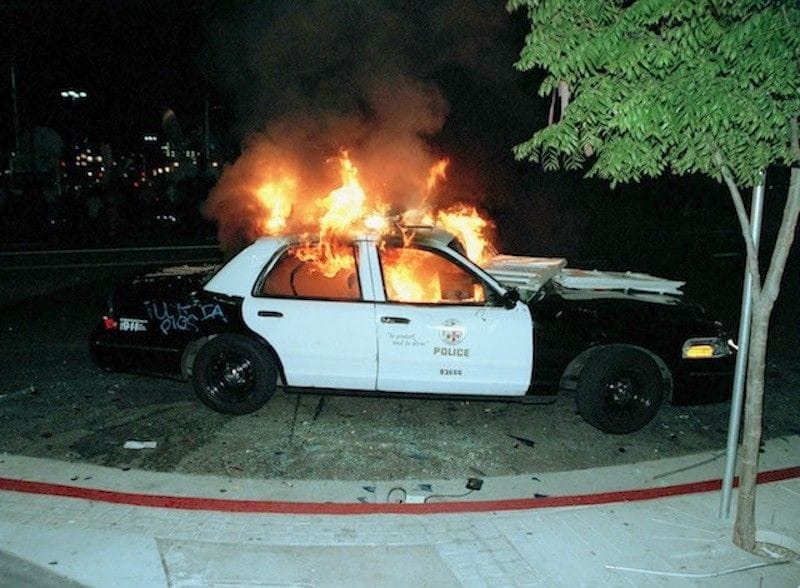
I love the idea of using the LA Riots to create context without overtly focusing on it. Will the story be told from any particular point of view -- the housekeeper's, the kid's?
Ale: There are two main characters: Diego, the kid, and Mireya, the housekeeper. The story is told mainly from Diego's point of view. In an ideal world, this would be a longer project that would give us more time to dive into the life of Mireya. Diego's journey probably gives us the best opportunity to open up the conversation and try to prevent something like this from happening again.
Jess: We tried to think about the story from different angles. Like if I was Diego's parent, how would I react? We wanted to get all of the dynamics right. Toxic masculinity is something we see a lot in Mexican culture ... machismo. We're more aware of it now, but it wasn't like that when I was growing up in the '90s. There was no "Me Too" movement, no social media. You were raised a certain way if you came from a Mexican household. If you add on the layer of affluence, space, location... This all makes the character and his point of view more complex. There's a moment in the film where you can see how much Diego loves Mireya. He still ends up doing something horrible to her, though. It's been interesting trying to figure out all of these different possibilities and perspectives.
Do you remember the first time you cognizantly experienced toxic masculinity? I was just thinking about this the other day. I dealt with it for much of my life without really having a way of defining it.
Maya: I can remember a time, but probably not the first. One of my early internships was at the Weinstein Company. Nothing intense happened to me specifically but it was part of the bro-y work culture, and I heard stories. Even though no one did anything specific to make me feel unsafe, I could feel my powerlessness. If I felt that energy now, I would absolutely avoid it.
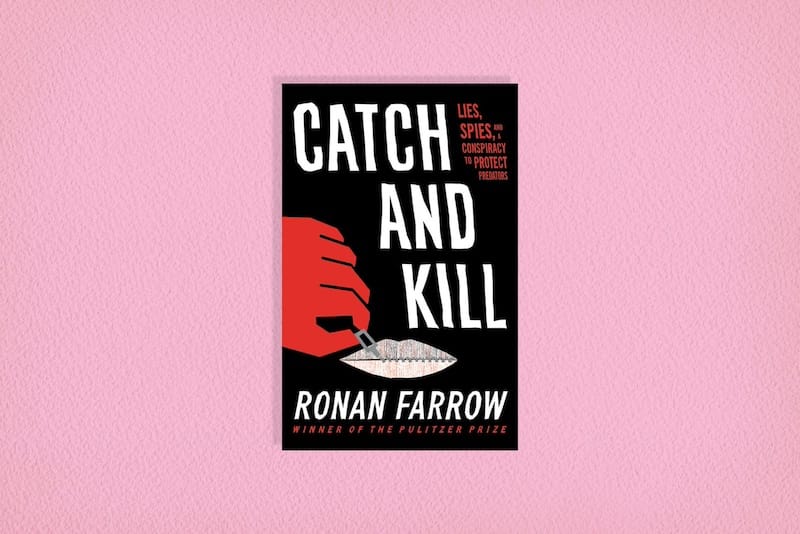
Jess: The "Me Too" movement brought a lot of awareness to my life. I remember going on Twitter and seeing all of the stories that women were sharing ... even just things like, "When my friend hugged me, he always really grabbed me." It was everything from minor to major. It made me realize how much I had actually unknowingly experienced. I just wasn't raised to be aware of these things.
My grandma was taken out of primary school to stay home and help her mom feed her three brothers and take care of household chores. Her education stopped at third grade because she was a woman. They were lower class working people and didn't have the means to send everyone to school, but of course the woman was the one who had to stay home. That didn't stop my grandma from learning, though. She's probably one of the most well-read and traveled women I've ever met... but the things she grew up thinking regarding her position in the world are totally different than what we're teaching little girls now.
I'm more aware of when a man doesn't ask me for permission now. Before it was sort of like, "Yeah, of course."
Ale: Witnessing my mom and dad's relationship (they're now divorced) was eye-opening. I could see the pressure that my dad would feel about being the provider. When he failed, he totally broke down and couldn't handle it. That's a big part of how toxic masculinity breaks men. There's also this culture of teaching boys and men to not take no for an answer. We need to stop teaching them that "no" means "maybe." A lot of men are taught that it's all about them; they never learn to consider the feelings and opinions of others.
It's a really gross business mentality that carries over to personal life. Under the patriarchal construct where men are the sole breadwinners, they can't take no for an answer at work because their families are completely dependent on their income. But how do you turn off that mentality when you come home? It's impossible.
Ale: Capitalism is the mirror for toxic masculinity. That whole mentality becomes a way to live your life. Nobody wins. My only hope is that this unsettling time will help us destroy capitalism once and for all.
Maya: Well, the stock markets are reflecting this.
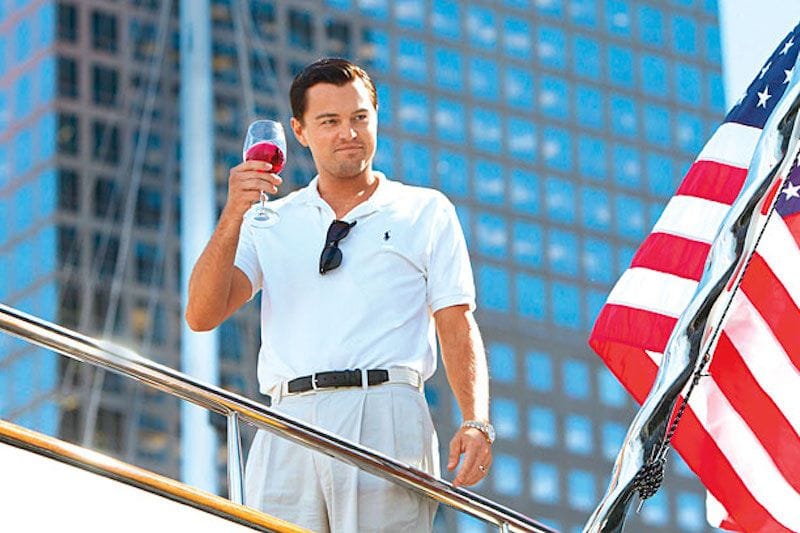
Ale: If we go back to community living, there will be more empathy and human connection, less of those roles that we feel we need to play.
Jess: The balance is way off. Women need to be taught how to achieve financial independence and business savvy while still retaining a creative nurturing spirit. Men need to learn how to be vulnerable ... to admit when they're wrong and learn to accept it without sacrificing success at work.
Maya: The example I always use is how differently men and women approach job applications. A man will apply if he meets a tiny portion of the requirements; a woman will meet all but one and deem herself unqualified. It's all about re-training women to believe in themselves.
The film industry is so masculine and white. There are tons of roadblocks in place for anyone with a different POV. Do you have any ideas about what could be done to make things better for creators who fall outside those norms?
Maya: On a small scale, I can say that most of my crews are predominantly female. I hire whoever I think is going to do the best job and find that those people are usually women. It's a way of giving opportunities to other women where there are less. This year, I've only worked on feminist and queer stories. I worked with really lovely straight men last year and felt like I had to prioritize other minorities this year. I've read a couple of scripts recently that had a really misogynistic tone. I didn't hold back in my notes at all on those. You have to take a strong approach and call out stuff like that when you see it.
Ale: Studio films are a whole other monster, but indie film really has the power to change those dynamics. You have the power to decide who you're going to hire, what story you're going to tell. That's why crowdfunding is a really powerful thing. It's your own community helping you tell these stories that studios aren't going to fund. Supporting other indie filmmakers and artists is the way to turn all of this around. I think that's a big weapon.
Jess: With every job that I do, I feel more prepared to have bigger conversations and take more risks. I try to have a clear vision about what I want to do in this industry. You have to come in knowing what you want and what you're willing to sacrifice. You might not be able to make a full-time living only focusing on the projects that you love. If that's the case, go in prepared to take on a side hustle. Sometimes we have to do commercials or things that don't necessarily align with what we believe in, but it's part of the job ... and it's what affords me the opportunity to work on amazing projects like this one.
Ale: Well, Jess ... that Mexican beer commercial that we worked on together actually had a good POV. The story was centered around Trump's comments on Mexicans ... you know, like they're rapists, animals, whatever. This campaign wanted to combat those negative messages. When you type "Mexicans are" into a search engine, you get horrible results; the commercial aimed to make them more positive. We got to use this platform to tell a good story and change that negative narrative.
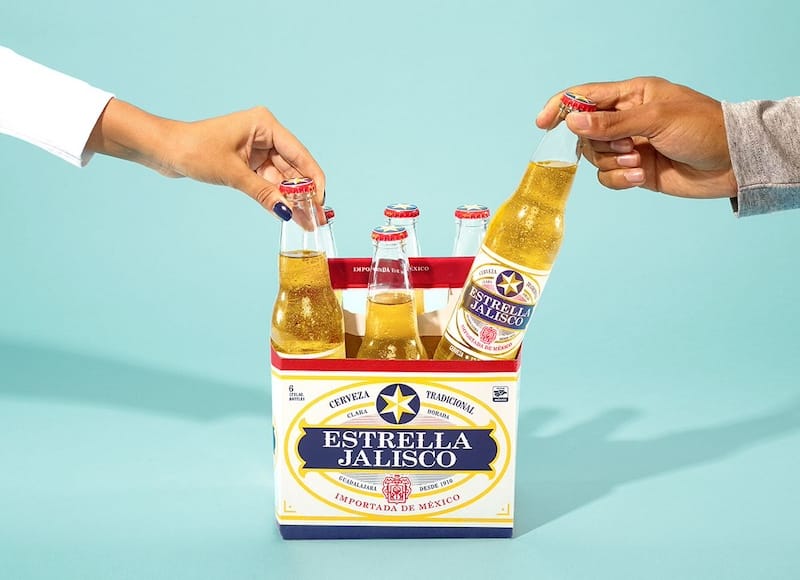
Jess: That commercial was made by a production company run by awesome women. Their entire ethos is to highlight stories that need to be heard by working with diverse people. Working with those types of companies is amazing, but they are too rare. The women who run that company came in with a clear idea – to do something different, diverse, and to tell good stories.
I like this idea of trying to find ways to make your side hustle align with your passions. Instead of just making it something you do for money, you can look for opportunities to shift the narrative and make an impact. Anddd... speaking of making an impact, what are the best ways for people to help you with this project?
Ale: We know this is a weird time to ask for donations, but we can't pause the campaign or cancel it. We're almost halfway there (currently at 57%). Our ask is that if you have the means and the story resonates with you, please contribute to the campaign. If you can't, which is totally understandable, share the campaign! Follow us on Instagram or Facebook.
Jess: This isn't just a film that we're making for ourselves. We're creating jobs. Maya and I like to pay our crews. We've worked with so many tiny budgets where it's like ... you get a free meal for being a PA. We try to make budgets large enough that allow us to financially compensate everyone.
Ale: We're going to shoot in LA, so we'll hire an LA crew, rent from smaller businesses, pay the city for permits ... all that good stuff. I have a friend who has a production house in Mexico, so it will also give some money to Mexico, the motherland. If we get to 100%, we'll donate any excess to the National Domestic Workers Alliance, which gives money to people who have been affected by COVID-19 and can't apply for unemployment or are without healthcare.
Maya: This is such a bizarre time to be raising money for a film. Everything going on around the world is going to filter in and give us greater depth than we were initially thinking. It's going to be very important.
Since this is such a shitty time, I want to know about the last thing you watched that helped ease your anxiety. That feels like a good endnote.
Jess: It didn't necessarily make me happy, but we just started watching the Netflix series "Tiger King" (2020). It made me forget about what's happening. We ended up opening a bottle of wine and having so much fun watching it on a... what day is it now? Wednesday.
Maya: Mine is "Derry Girls" (2018-22) on Netflix. It's about these weird teens in Northern Ireland and set against the background of the Troubles. It ends when the IRA agreed to ceasefire. There's a lot going on in the background, but it's just about these girls living their lives as naughty Catholic school girls. I giggled the whole way and it made me homesick for the UK, even though I've never been to Ireland. My American friends watch it with subtitles because the accents are strong, and they speak fast.
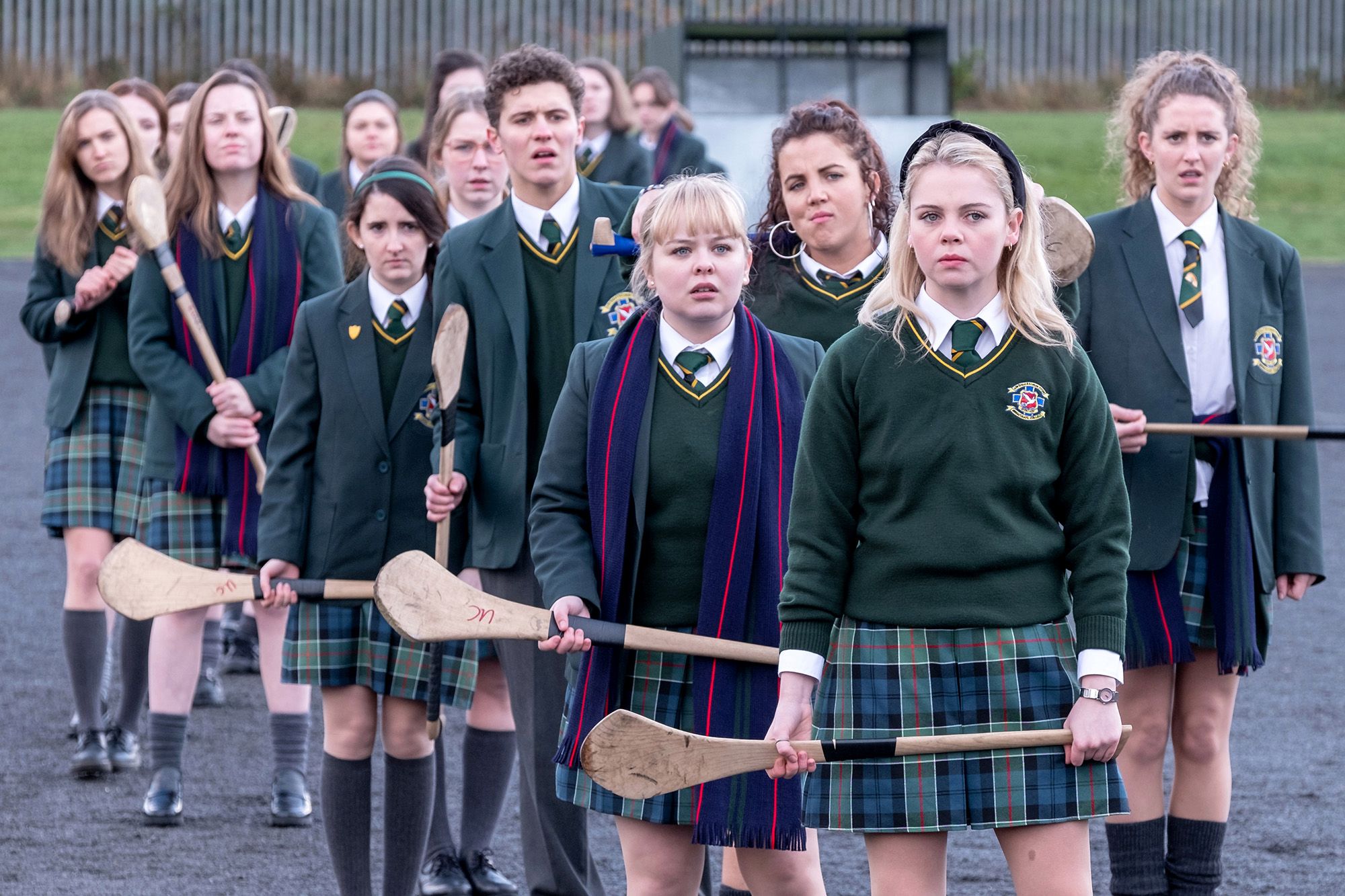
Ale: I watched "Portrait of a Lady on Fire" (Sciamma, 2019). It was amazing and beautiful. Also, this isn't something I watched, but my friend started this pirate radio called WQTN. They play awesome music, talk, meditate. You never feel alone because you know that there's someone on the other side.
I love that and will definitely tune in. Sometimes I just need a reminder that other humans exist and it's not just me and my cats.

